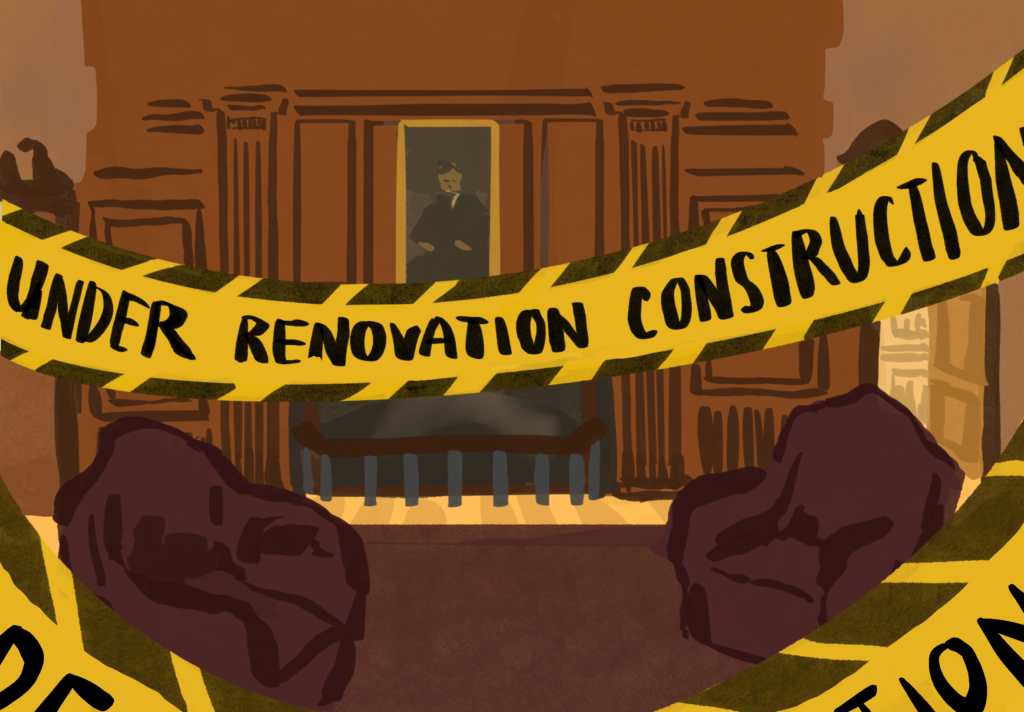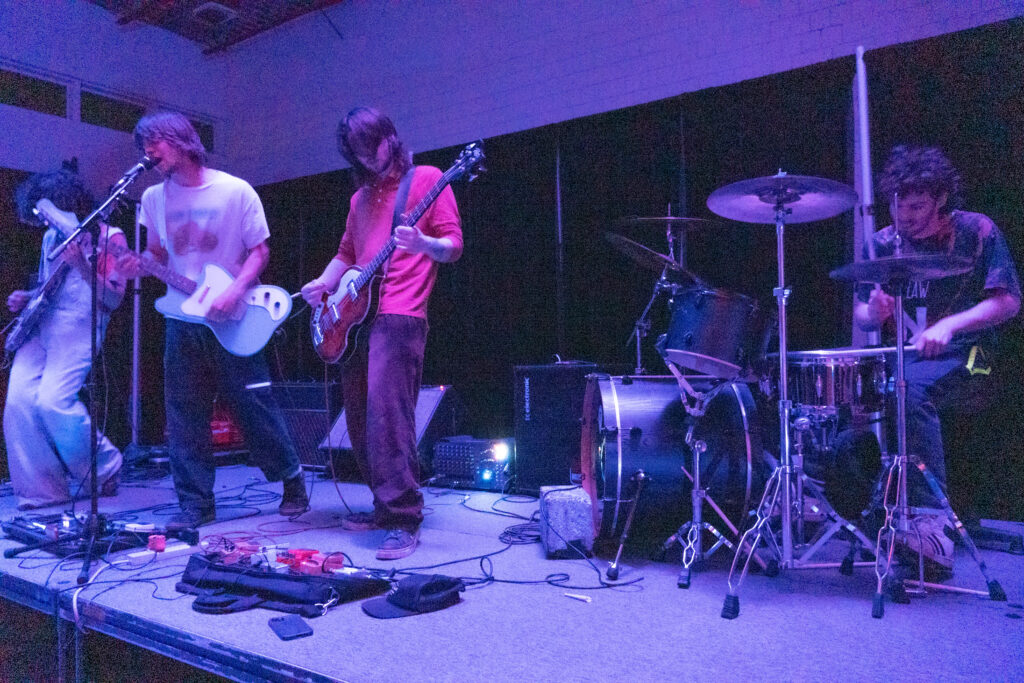After five days of raising awareness for issues of social justice and encouraging unity in the community, Choate’s first-ever Solidarity Week came to a close last Friday, May 3. Hosted by students who attended the BorderLinks trip, the week of events included several club-hosted discussions on the intersectionality of issues relating to the U.S. and Mexico border.
Over spring break, Ms. Melissa Koomson, Mr. Ben Small, Ms. Kolina Koleva, and ten students went on a trip to Tucson, Arizona and Mexico to a non-profit organization called BorderLinks. They traveled to various sites, participated in a wide range of activities, engaged in numerous discussions, spoke with several speakers, and learned more about immigration and border patrol.
“The goal of the trip itself was to raise students’ awareness around the complex issues as they relate to the U.S. and Mexico border,” explained Ms. Koomson. Ms. Koomson herself participated in the BorderLinks program for three years in high school. She continued, “Since [we’re] not right there, close geographically, to the site, it is hard to really get a sense of what the climate is like.” The trip provided students with the opportunity to witness the issues of the region themselves.
Solidarity Week gained its inspiration from the trip itself, as a component of the BorderLinks program’s expectations was that students would continue their work in their own communities after returning from Arizona and Mexico.
The initial process of planning the events involved formulating a general idea of what the students wanted the project to look like. To start their planning for the event, the students completed a simulation activity that mimicked the issue at the border. Throughout the trip, they discussed a plan regarding their initiatives and listed possible activities that might help raise awareness for the difficulties and problems surrounding the U.S.–Mexico border and translate what they learned in Arizona to Choate. They discussed different aspects of Solidarity Week and devised a plan before returning to campus. The students’ overarching goal, trip participant Di’Anna Bonomolo ’20 stated, was “to maintain solidarity within our community in times when there are opposing views.”
“One of the biggest things that struck people while we were on the trip was the intersectionality of all the issues,” said Tyler Neri ’21, another participant in the Borderlinks trip. Neri wanted to find a way to connect people with different interests to the larger topic of immigration and border security.
“I would like people to understand that this is not just an issue for these politicians that are screaming about it on [the] news to get attention for their campaigns, but that it’s something that [is causing] real people to genuinely suffer,” Neri added.
Clubs with a focus on minority groups and topics related to diversity, such as the Hispanic Latinx Forum, Choate Diversity Student Association, Muslim Student Association, Choate Afro-Latino Student Alliance, and Asian Student Association, kicked off the week on Monday, April 29 by gathering together for a meeting on “Systems of Oppression.”
On Tuesday, the SPECTRUM club hosted a meeting on “Abuse and Asylum,” which examined the issues that LGBTQ+ people face when seeking asylum or when in detention centers.
“We just had a very open and honest discussion about the various issues concerning immigration and the Mexico border,” Nico Campbell ’21, co-president of SPECTRUM, said. “It’s a difficult issue to discuss because nobody can really prove their sexual orientation or gender identity. It is difficult to get asylum when you are in danger because of something you can’t prove.”
On Wednesday, Choate’s Environmental Action Coalition, Choate for Clean Water, and Student Advocates for the Environment hosted the “Borders in Nature” meeting, which aimed to connect border issues to environmental ones. May Zhao ’21 and Victoria Esquibies ’20 delivered a presentation to help students understand the BorderLinks trip and the effect that border security initiatives have had on the environment and ecosystems around it.
PJ Sethbhakdi ’21 said, “I was surprised to see how connected these issues can be. I think that this would be a great experience for not only those who are interested in the border but to those who are interested in how it links to many of our modern global issues.”
On Thursday, the Young Democrats and the Young Republicans led a meeting aimed at learning more about the migrant situation on the southern border and the ways in which the situation can be improved for the United States and the migrants coming in from Central and South America. Tyler McLemore ’22, a member of the Young Democrats, said, “I think that in a world where we see so much polarizing rhetoric coming from politicians and people in power across the world, it is very important to realize our shared commonality and focus on what unites us all.”
On Friday, the Art Club hosted the “Art of Resistance” meeting, where students discussed the unexplored artistic aspects of issues at the border — for instance, as Mr. Small explained, “On the Mexican side, the border is decorated with artwork, graffiti, flowers, and crosses dedicated to those who lost their lives. But on the United States side, it’s almost like a demilitarized zone.”
As Choate’s first-ever Solidarity Week came to a close, Bonomolo hoped that “Choate students will be able to understand what it means to live in a world where there are all sorts of unpleasant sights.” BorderLinks provoked very strong emotions in the students who went on the trip. “I care about people and want them to be able to live a life free of constant fear.” Bonomolo said.



